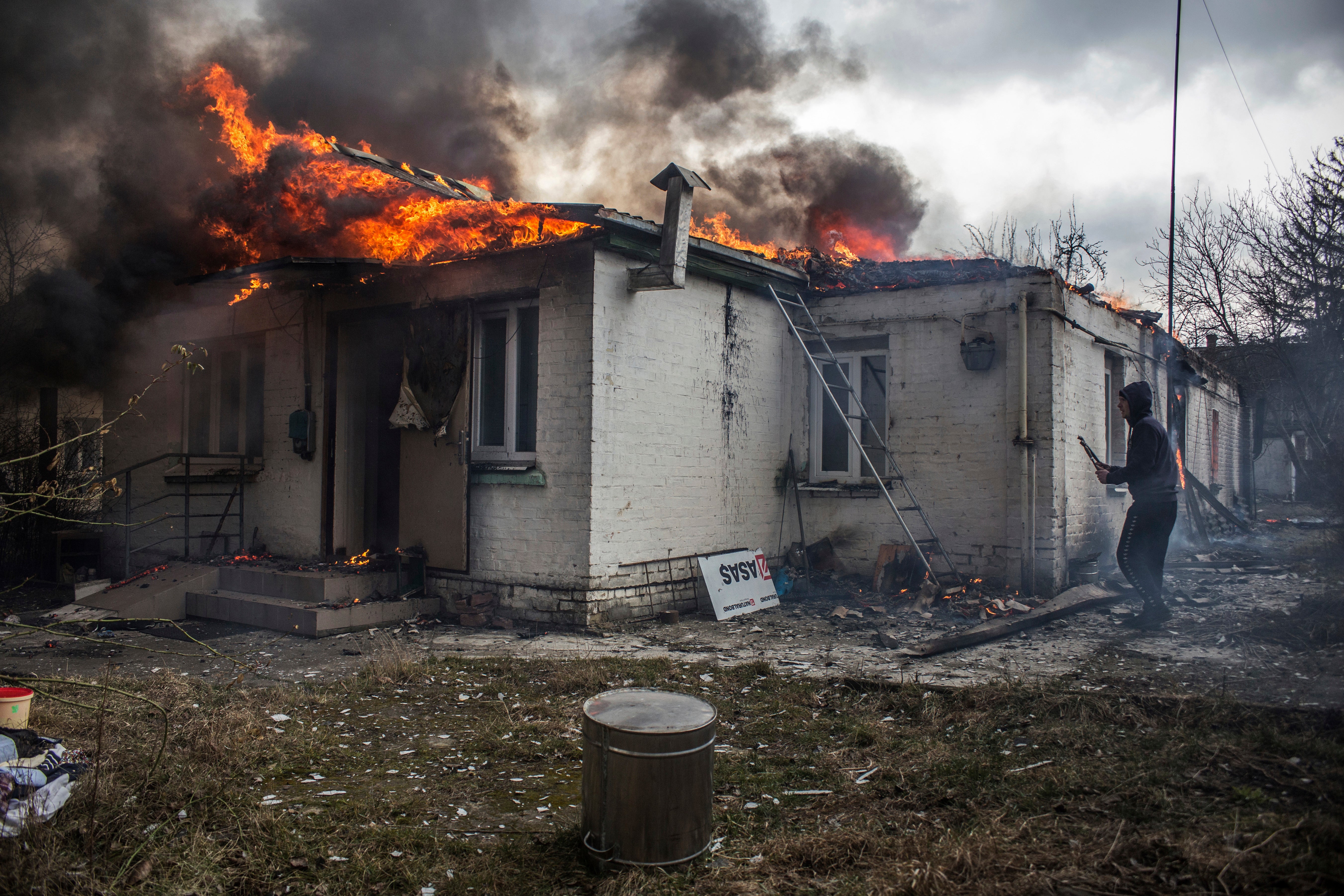Russian invasion: What are the rules of war and who do they protect?
The Geneva Conventions aim to protect civilians, aid workers and injured soldiers during conflicts.

Your support helps us to tell the story
From reproductive rights to climate change to Big Tech, The Independent is on the ground when the story is developing. Whether it's investigating the financials of Elon Musk's pro-Trump PAC or producing our latest documentary, 'The A Word', which shines a light on the American women fighting for reproductive rights, we know how important it is to parse out the facts from the messaging.
At such a critical moment in US history, we need reporters on the ground. Your donation allows us to keep sending journalists to speak to both sides of the story.
The Independent is trusted by Americans across the entire political spectrum. And unlike many other quality news outlets, we choose not to lock Americans out of our reporting and analysis with paywalls. We believe quality journalism should be available to everyone, paid for by those who can afford it.
Your support makes all the difference.Even during war, countries are supposed to abide by a set of international rules setting out what they can and cannot do.
Here, the PA news agency takes a look at these rules of war.
– What are they?
The Geneva Conventions of 1949 are described by the International Committee of the Red Cross (ICRC) as one of humanity’s most important accomplishments of the last century.
They are international treaties which aim to protect civilians, aid workers, medical professionals and people who can no longer fight such as the wounded and prisoners of war.
– How many rules are there and who are they meant to protect?
The are four conventions. The first specifically protects wounded and sick soldiers on land during war, the second protects this group at sea during war, the third applies to prisoners of war, and the fourth protects civilians, including people in occupied territory.
There are also three additional protocols which were adopted in the decades after the conventions.
The first two aim to strengthen the protection of victims of international and non-international armed conflicts such as civil wars.
The third created an additional emblem, the Red Crystal, which has the same international status as the Red Cross and Red Crescent emblems in being used to easily identify and protect medical and relief workers, military and civilian medical facilities, mobile units and hospital ships during armed conflict.
– Is Russia signed up to them?
Yes. The conventions have been ratified by all member states of the United Nations (UN).
The UN states that many of the Geneva rules are considered as part of customary law and are therefore binding on all states, whether or not the countries have ratified the treaties themselves.
– What happens if the rules of war are broken?
If international humanitarian law is violated the state responsible must make full reparation for the loss or injury it has caused and individuals accused of war crimes must be searched for, investigated and prosecuted, the ICRC said.
– How are the rules enforced?
National legal systems, diplomatic channels or international dispute resolution mechanisms are all ways the rules can be enforced, the ICRC said.
Any state can investigate and prosecute war crimes, and international courts can become involved.
The UN Security Council can compel states to comply with their obligations and if there are breaches then tribunals can be established to investigate.
– Have there been breaches in the invasion of Ukraine?
The attack by Russian forces on the Zaporizhzhia nuclear site in Ukraine has been widely condemned.
The UK’s permanent representative to the UN Dame Barbara Woodward suggested the action might not have been in keeping with the conventions.
She said Russia “must keep fighting away from and protect the safety and security of nuclear sites”.
Dame Barbara said: “This is the first time that a state has attacked a fuelled and functioning nuclear power plant.
“International law requires special protection for nuclear facilities and it is difficult to see how Russia’s actions were compatible with its commitments under Article 56 of the additional protocol of the (Geneva) Conventions. It must not happen again.”